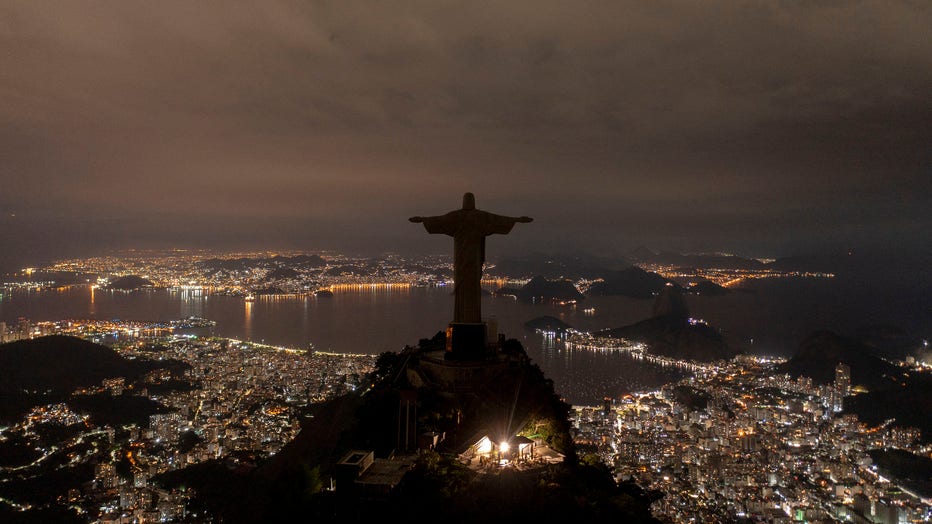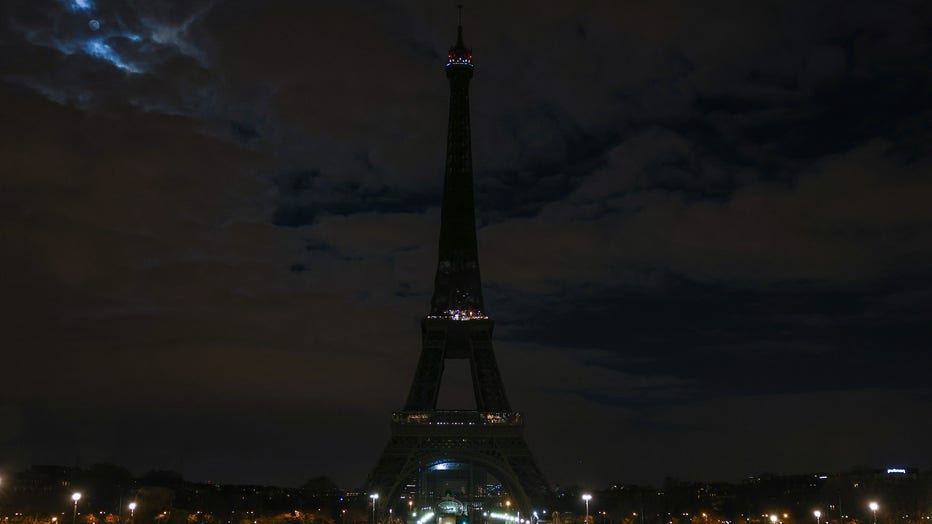Earth Hour 2024: Why major world landmarks are going dark
Extreme heat, climate change an 'existential threat,' Biden says
President Biden announced steps to protect workers and improve forecasts amid record-breaking warming.
Major landmarks across the globe are going dark en masse Saturday night for Earth Hour 2024.
Starting at 8:30 p.m. local time, iconic places like Buckingham Palace and Big Ben in London, the Eiffel Tower in Paris, the Opera House in Sydney, the Empire State Building in New York, and the Space Needle in Seattle will turn out the lights for one hour to raise awareness for the environment. It’s billed as the "biggest hour for Earth."
Here’s what to know about the annual, globally recognized event.

The statue of Christ the Redeemer is seen after being plunged into darkness for the Earth Hour environmental campaign on top of Corcovado hill in Rio de Janeiro, Brazil, on March 26, 2022. (Photo by MAURO PIMENTEL/AFP via Getty Images)
RELATED: Space Needle joins major U.S. landmarks in going dark for Earth Hour 2024
What is Earth Hour?
Earth Hour has been happening annually since 2007. Each year, the World Wildlife Federation asks landmarks and homes worldwide to turn off their lights for an hour to raise awareness of climate change and other environmental issues.
RELATED: Here are the most polluted cities in the US, globally
This year, as major landmarks go dark, the World Wildlife Federation is asking people around the world to "give an hour for Earth" and spend 60 minutes doing an "eco-positive" activity sometime between now and Earth Day on April 22. Participants are encouraged to log their activities and contributions in the WWF’s Hour Bank.

The Eiffel Tower submerges into darkness as part of the Earth Hour switch-off on March 27, 2021 in Paris, France. (Photo by Pierre Suu/Getty Images)
You can find activity suggestions and learn more about the campaign here.
RELATED: How scientists believe the loss of Arctic sea ice will impact US weather patterns
"This new campaign approach proves that environmental action can be easy, fun and impactful. By expanding participation to those who are not yet environmentally engaged, we hope to raise awareness and spur collective action in protecting our planet," Katy Fenn, WWF’s director of brand engagement and education, said in a prepared statement.

